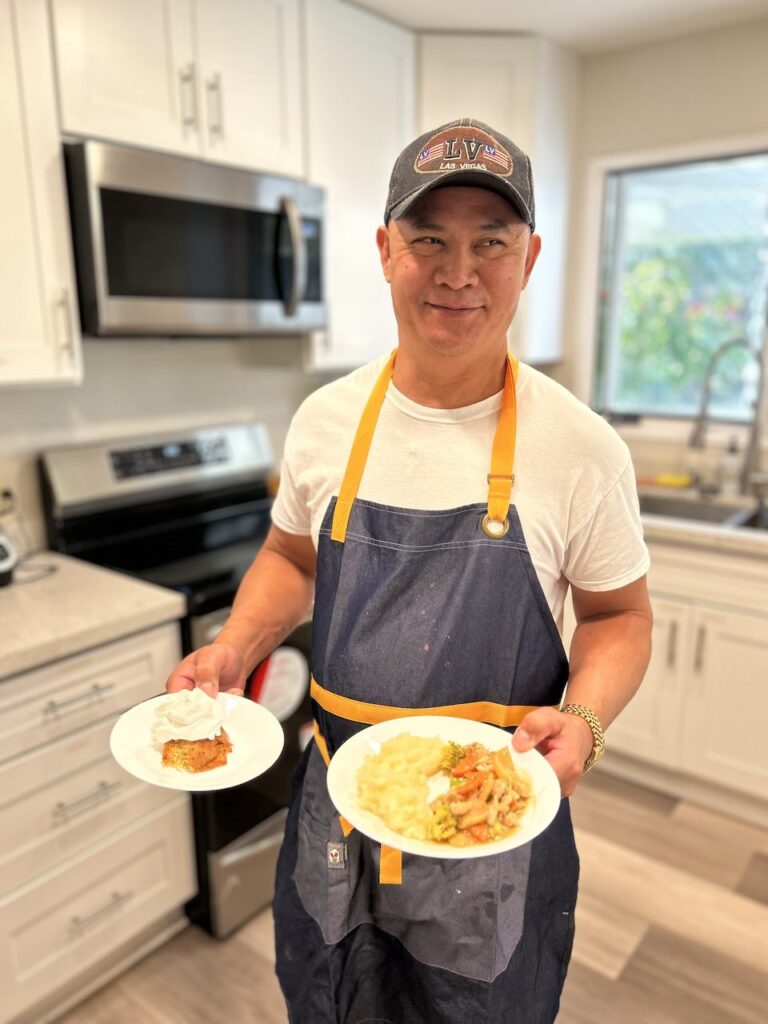The Complete Guide to Senior Nutrition: Nourishing the Golden Years
As individuals gracefully age, the importance of maintaining a healthy and balanced diet becomes increasingly paramount. Senior nutrition is not merely about sustenance; it is a key component in supporting overall health, vitality, and quality of life during the golden years. In this comprehensive guide, we will explore the essential aspects of senior nutrition, providing insights, tips, and actionable advice to ensure that seniors can enjoy a fulfilling and nourished lifestyle.

Understanding the Unique Needs of Seniors
1. Nutrient-Rich Foundations:
Senior nutrition begins with a focus on nutrient-dense foods. As metabolism naturally slows down with age, it is crucial to prioritize foods rich in vitamins, minerals, and antioxidants to support overall well-being. Fresh fruits, vegetables, whole grains, lean proteins, and dairy or dairy alternatives form the foundation of a balanced senior diet.
2. Protein for Muscle Health:
Preserving muscle mass is vital for maintaining mobility and preventing frailty. Adequate protein intake is key, with sources such as lean meats, poultry, fish, eggs, beans, and nuts being excellent choices. Distributing protein intake evenly throughout the day contributes to optimal muscle support.
3. Bone Health Essentials:
As bone density tends to decrease with age, seniors should pay special attention to calcium and vitamin D intake. Incorporating dairy products, fortified plant-based milk, leafy green vegetables, and nuts into the diet helps fortify bones and promote overall skeletal health.
Addressing Common Challenges in Senior Nutrition
1. Hydration Matters:
Dehydration is a common concern among seniors, often exacerbated by a reduced sense of thirst. Encouraging regular water intake and including hydrating foods like fruits, vegetables, and soups in the diet are essential to maintaining proper hydration levels.
2. Dental and Digestive Health:
Dental issues and digestive concerns can impact dietary choices for seniors. Opting for softer, easy-to-chew foods and incorporating fiber-rich options can address these challenges. Regular dental check-ups are also crucial for maintaining oral health.
3. Managing Chronic Conditions:
Senior nutrition must be tailored to individual health conditions. For those with diabetes, managing carbohydrate intake is essential, while individuals with hypertension benefit from a heart-healthy, low-sodium diet. Addressing these conditions through diet plays a significant role in overall health management.
Crafting a Personalized Senior Nutrition Plan
1. Individualized Meal Planning:
Every senior is unique, and their nutritional needs may vary. Crafting a personalized meal plan that aligns with preferences, dietary restrictions, and health requirements ensures that seniors can adhere to their nutrition goals while enjoying the foods they love.
2. Incorporating Superfoods:
Superfoods, rich in antioxidants and other beneficial compounds, can be valuable additions to a senior’s diet. Berries, nuts, seeds, and fatty fish are examples of nutrient-packed superfoods that contribute to overall health and well-being.
3. Supplementation When Necessary:
In some cases, seniors may benefit from nutritional supplements to meet specific dietary needs. Consultation with healthcare professionals can help determine if supplements such as vitamin B12, calcium, or omega-3 fatty acids are necessary to complement their diet.
Promoting Positive Eating Experiences
1. Social and Enjoyable Dining:
Eating is not just about nourishment; it’s also an opportunity for socialization and enjoyment. Encouraging seniors to share meals with friends or family, or participate in community dining programs, can enhance their overall well-being.
2. Mindful Eating Practices:
Mindful eating involves savoring each bite, eating slowly, and paying attention to hunger and fullness cues. Incorporating these practices into daily meals can lead to better digestion, increased satisfaction, and an overall positive relationship with food.
The Role of Caregivers and Support Systems
1. Educating Caregivers:
Caregivers play a crucial role in supporting senior nutrition. Educating caregivers about the unique dietary needs of seniors, providing practical meal preparation tips, and ensuring that dietary preferences are considered can significantly contribute to the well-being of the elderly.
2. Regular Health Check-ups:
Regular health check-ups, including nutritional assessments, are essential for monitoring and adjusting the senior’s diet as needed. Consulting with healthcare professionals allows for a holistic approach to senior health and nutrition.
Conclusion: Embracing a Nourished Future
In conclusion, “The Complete Guide to Senior Nutrition” serves as a roadmap for seniors, caregivers, and healthcare professionals alike. By understanding the unique nutritional needs of seniors, addressing common challenges, and crafting personalized and enjoyable eating experiences, we can ensure that the golden years are truly nourished and fulfilling. Through the power of a comprehensive and thoughtful approach to senior nutrition, we empower individuals to embrace the aging process with vitality, resilience, and a commitment to a well-nourished future.

